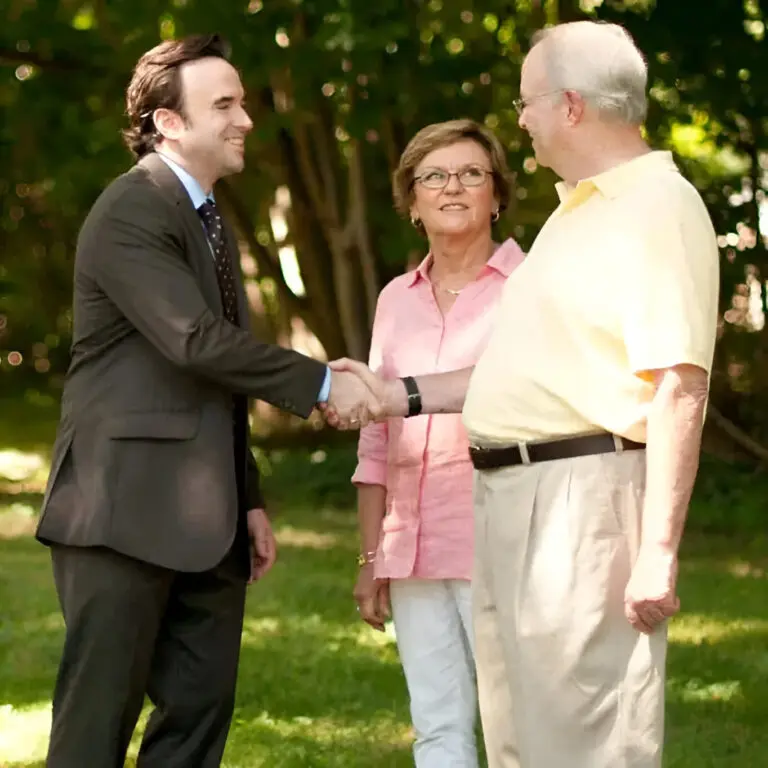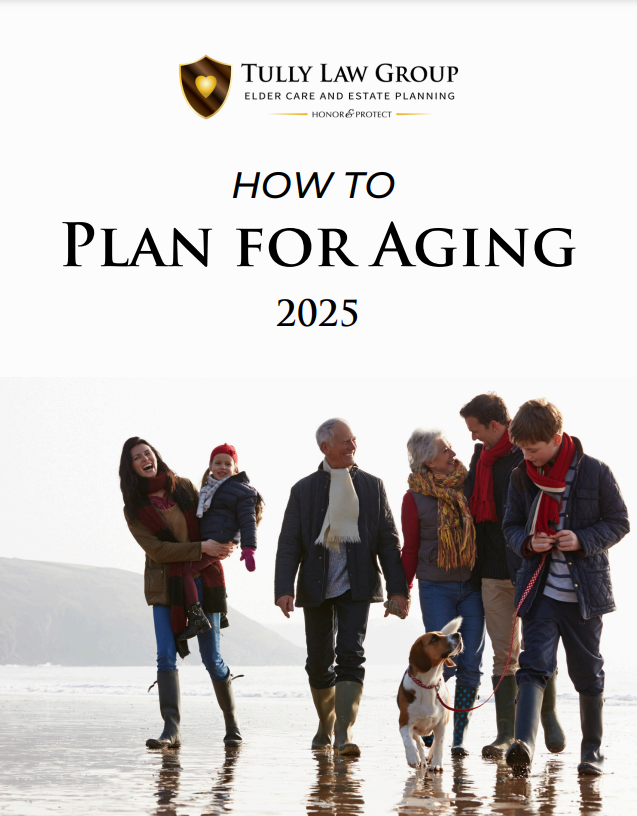

I loved my grandparents so much. I was young and in school when they each went through their illnesses. I saw what my parents, aunts and uncles did to help and it wasn’t easy for them or my grandparents. My fond memories are clear but there is an emotion tied to their aging and caregiving issues that has inspired me and fueled a motivation to help other families, parents and grandparents. I wanted to help them – people of their generation, in their stage of life – older folks and grandparents.
Learn more about why I became an Elder Care Attorney.

Tully Law Group has spent more than two decades helping families across Long Island and the NYC area respond to the estate planning and elder care challenges older adults face as they age and deal with the demands of confronting illness and disability. Whether you have an urgent need for health care or want to plan your estate in advance, our team of Melville attorneys, paralegals, and elder care coordinators has the experience to guide you and develop the appropriate estate plan with confidence.
Our approach to Elder Care and Estate Planning includes providing for your legal, financial, and long-term care needs. We provide legal services in the areas of Elder Law, Estate Planning, Trusts, Medicaid Eligibility, Probate and Guardianship. In addition, we were the first Long Island elder law firm to integrate the Life Care Planning model into its practice. Life Care Planning is a unique approach that helps families respond to every health care challenge their elderly loved ones may face.
Let our elder care experience bring you the peace of mind you deserve.

When someone dies, the assets in their estate must go through probate for division. A person’s estate is the property that is owned solely in their name and does not have a named beneficiary. The court appoints a person to collect the property in the estate, use it to pay the deceased person’s creditors, and distribute the balance to the decedent’s heirs.
Probate can be expensive and take considerable time, often a year or more. Until the process is complete, the decedent’s family members do not have access to the property in the estate. In some cases, that could cause considerable hardship.
It is rarely possible to avoid probate entirely, but an estate plan can limit the property that is subject to probate. It is possible to reduce the probate estate by transferring wealth into trusts, purchasing life insurance, holding property jointly with someone else, and naming beneficiaries to brokerage and bank accounts. When planning an estate, our skilled Melville attorneys could help ensure that the portion of a deceased person’s estate that must go through probate is as small as possible.
Download our free ‘How to Plan for Aging’ Guidebook.
Get Your Copy

Tully Law Group, PC, is proud to offer reduced fees for retired and active-duty military, police, fire and EMS members
Learn MoreOur mission is to help families find peace of mind and guide you through the entire process of Life Care and Estate Planning.
Watch the video to find out how we’ve been able to help other families and how we can be of service to you.
Click the gold play button to watch now.
Attorney Brian Andrew Tully, Esq. is proud to announce that his article, “Elder Law Concepts” has been chosen to appear in the newly released publication “WealthCounsel.”® In his article, Mr. Tully...
Learn More
As our loved ones age, ensuring their safety, health, and well-being becomes a top priority. Protecting elders goes beyond physical care—it involves safeguarding their financial assets, advocating for their legal rights, and addressing their emotional and social needs.
Learn More

The laws of intestacy govern what happens to someone’s property when they die without a will. New York Estates, Powers, and Trusts Law § 4-1.1 states that when a deceased person without a will has a surviving spouse and children, the spouse gets one-half of their property plus $50,000, and the children divide the rest. The spouse gets everything when there are no surviving children, and the children share everything equally when there is no surviving spouse. Parents, siblings, and grandparents could inherit when there are no closer surviving relatives.
Many people would prefer to distribute their property differently than the law requires. They can do this by having a will as a component of a comprehensive estate plan. The estate plan allows many of their assets to pass directly without probate, and the will makes sure that those assets that must go through probate pass to the people the decedent intended.
Someone creating an estate plan also must think about who they want to make decisions if they become unable to make or communicate their wishes. When making an estate plan, our Melville attorneys would include a durable power of attorney, healthcare proxy, and living will.







Contact our firm to set up a FREE initial consultation with convenient offices in Melville, Northport and Riverhead. Taking the time to construct an estate plan now can save you and your family significant time, money, and worry in the future. A thoughtful estate plan is a wonderful gift to your loved ones that will benefit them long after you are gone.
Our elder care and estate planning attorneys will listen to your needs and construct a plan that furthers your goals.